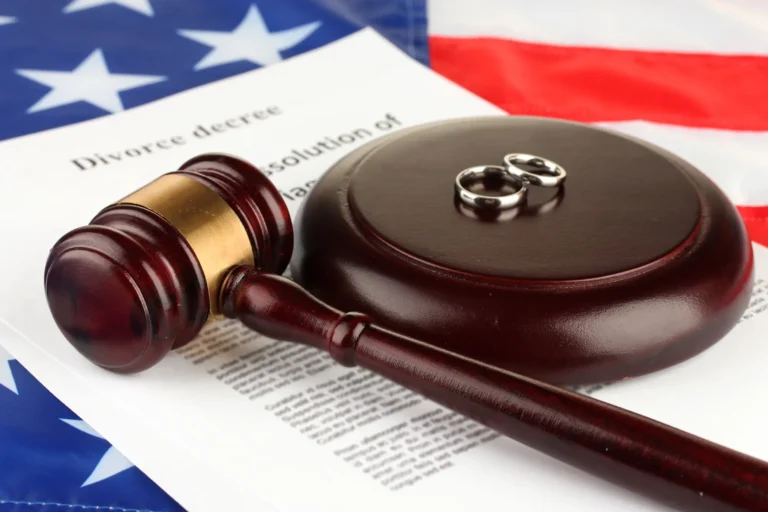Articles
1-10 of 130 results
4 Truths No One Tells You About Divorce
By Jennifer Piper• January 5, 2026Posted in
Divorce does not have to destroy your finances, your mental health, or your family relationships. Even when emotions run high, there are ways to resolve issues privately, fairly, and with less conflict through options like Mediation and Collaborative Divorce. Many people enter divorce believing it will be a long, exhausting fight that leaves lasting damage behind. That belief alone can shape how the process unfolds. In reality, there are important truths about divorce that often go unspoken. Understanding them early can help you make decisions that protect your finances, your family, and your well-being. 1) Divorce Does Not Have to Be a Battle One of the biggest surprises people learn too late is that divorce does not have to feel like a war. Even when…Bringing Experts into the Mediation Process
By Jennifer Piper• December 29, 2025Posted in
Experts can be helpful in Mediation when you and your spouse need support understanding the value of assets or need guidance on financial, property, or practical issues. Bringing in experts during Mediation is often faster and far less expensive than relying on the court to resolve the same questions. Why Experts Can Be Helpful During Mediation Mediation works best when you have clear information. When a decision involves valuations, financial questions, or specialized knowledge, an expert can help you and your spouse understand the situation more fully. This makes your discussions easier and helps you explore options instead of getting stuck on uncertainty. A common example is getting a home appraisal. Your house is often one of the largest assets you share. If you and…What Happens Next if Mediation or Collaborative Divorce Doesn’t Work?
By Jennifer Piper• December 22, 2025Posted in
If Mediation or Collaborative Divorce does not lead to an agreement, your case moves into the court system. A judge may require more Mediation, issue temporary orders, and ultimately make decisions for your family. You lose control over the outcome, your case becomes public, and the process becomes more expensive. When Mediation or Collaboration Does Not Lead to a Full Agreement Mediation and Collaborative Divorce are highly successful for most families, but there are times when they do not result in a full agreement. This may happen because emotions are running high, one spouse refuses to participate, or progress stalls for reasons outside of your control. When this occurs, your case shifts from private discussions to the formal court system. What It Means to Enter…Why Staying Out of Court Saves You Money
By Jennifer Piper• December 15, 2025Posted in
Avoiding court during your divorce will save money because you reduce attorney time, avoid court-driven deadlines, and limit the conflict. Mediation and Collaborative Divorce keep your divorce discussions focused on solutions instead of arguments, which lowers the overall cost and helps you reach agreements more efficiently. Why the Court Process Increases the Cost of a Divorce When you file for divorce in court, the process immediately becomes more expensive. Deadlines start running the moment documents are filed. Your attorney must prepare pleadings, respond to filings, and follow court requirements, even while you are still trying to settle your case. This creates a situation where you pay for both preparation and negotiation at the same time. Court filings also increase tension. When one side files something…Who Makes Medical Decisions for Your Child After Divorce?
By Jennifer Piper• December 8, 2025Posted in
After your divorce, medical decisions for your child depend on whether you share joint legal custody or if one parent has sole legal custody. In Missouri, most parents have joint legal custody, which means you work together on major healthcare choices. If there are disagreements on medical issues, you can use a parenting coordinator to help make those decisions. Understanding Medical Decision-Making After Divorce When you and your co-parent are no longer married, who makes medical decisions for your child can feel uncertain. Missouri law provides a structure for those decisions through joint legal custody or sole legal custody, but your agreement or court order ultimately guides how decisions are made. Joint or Sole Legal Custody In Missouri, most parents receive joint legal custody. This…Why the Mediation Process Is a Better Option
By Jennifer Piper• November 24, 2025Posted in
Mediation gives you more control, privacy, and flexibility than going to court. It allows you and your spouse to create solutions that fit your family instead of relying on a judge’s decision. For most families, Mediation saves time, money, and emotional stress while helping preserve respect between both parties. What Makes Mediation Different In Mediation, you and your spouse work together with a neutral mediator to reach agreements on important issues such as custody, support, and property division. Instead of preparing for a public courtroom battle, you can talk through your concerns privately and focus on finding common ground. Court cases often take months or even years to finish, and by the time a judge issues an order, the situation may have already changed. In…Can Child Custody Orders Be Changed?
By Jennifer Piper• November 17, 2025Posted in
Child custody orders can be changed if there has been a change in circumstances and the new arrangement is in your child’s best interest. In Missouri, you can modify custody, decision-making authority, or parenting time through the court. Many parents choose to resolve these matters privately through Mediation or the Collaborative Divorce process because those approaches offer privacy and allow you to create solutions that truly fit your family’s needs. Custody and Parenting Plans Can Change Under Missouri law, any part of a custody arrangement can be modified. That includes who makes decisions for the child, where your child attends school, and how parenting time is divided. To request a change, you must show that circumstances have changed since the original order and that the…What Issues in a Divorce Decree Can Be Modified and What Cannot
By Jennifer Piper• November 10, 2025Posted in
In Missouri, you can modify most parts of your divorce decree that involve children or support if circumstances change. Property division, however, is permanent once finalized. Mediation and the Collaborative Divorce process can help you make these changes more privately and flexibly than traditional court proceedings. What Can Be Modified Anything related to your children can be changed if it supports their best interests and if circumstances have significantly changed. This includes legal and physical custody, child support, parenting schedules, school and activity costs, and health insurance. Missouri courts allow modifications so that parenting plans remain practical and continue to work for your family as life evolves. Maintenance, also known as spousal support, can also be modified. You may request an increase, decrease, or termination…Divorce: Plan to Resolve Holiday Issues Early
By Jennifer Piper• November 4, 2025Posted in
Holiday parenting schedules work best when they are planned early. Waiting until the last minute can create stress for you, your children, and your attorney. Waiting too long may make it impossible to address the holidays, leaving you and possibly your children disappointed. Addressing these issues ahead of time allows you to focus on what really matters, spending meaningful time with your family. Plan Ahead for a Peaceful Holiday Season The sooner you address holiday possession questions, the easier it is for everyone involved. When parents wait until the last minute to discuss plans, it often leads to frustration and confusion. The closer you get to the holidays, the harder it becomes to make thoughtful decisions, especially when both parents have busy schedules and long-standing family…What Does Healthy Co-Parenting Look Like After a Divorce?
By Jennifer Piper• October 27, 2025Posted in
Healthy co-parenting means respecting your child’s other parent, focusing on solutions instead of conflict, keeping your attention on what lies ahead for your children, and always putting their needs first. Respect and Communication Even if you no longer get along with your former spouse, healthy co-parenting means treating them with respect. That doesn’t mean you have to be friends or spend extra time together, but it does mean speaking politely, avoiding name-calling, and keeping conversations focused on the children. Many parents find it helpful to treat communication with a co-parent like a business exchange. Keep it short, courteous, and focused on the subject at hand. Using email or text can also reduce tension if in-person conversations are difficult. Keeping Children Out of Conflict Children should…










